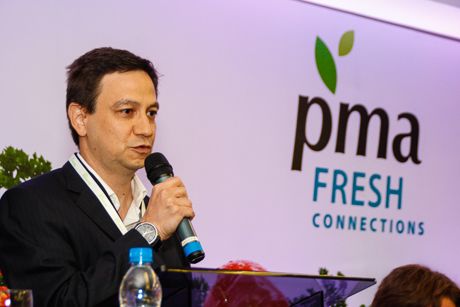 r afternoon and vehicles are moving slowly and uninterruptedly through the streets and alleys of the huge city of Sao Paulo, South America's most important business hub and one of the cities with the worst road traffic in the world.
r afternoon and vehicles are moving slowly and uninterruptedly through the streets and alleys of the huge city of Sao Paulo, South America's most important business hub and one of the cities with the worst road traffic in the world.Long distances between the city's main points of interest and constant bottlenecks force business travellers to spend long hours travelling by taxi, which should not only be seen as a means of transport, but also as a source of information. If you are interested to know what the local current issues of interest are, "ask the taxi driver."
"This heat is not normal. The weather changes a lot in Sao Paulo and it has been over 8 months since it last rained!," says Mario Luzio to his passenger.
The temperature is slightly above 30 degrees. Luzio closes the windows and switches on the air conditioning, looking to liven up the 45 minutes they will need to travel the mere five kilometres to the trendy suburb of Villa Olimpia.
The city is suffering the greatest water crisis in its history because of the worst droughts in the last 45 years.
Prolonged drought in Sao Paulo is just a symptom of human-induced climate change. The same scenario occurs in many places in the world; fresh water is scarce and not only is the situation not likely to improve, but it could worsen dramatically in the coming years.
70% of the world's fresh water is used in agriculture, and studies believe that, with the estimated population growth, by 2050 we will have to increase the food production volume by at least 50%.
It is clear that we can no longer continue doing everything as we have in the past. The development and implementation of more sustainable forms of production in the region and the world is simply essential.
"We want to supply our partners with more knowledge and provide Brazil with the best practices in production, sustainability and trade," announces Luis Haas, General Manager of fruits and vegetables of Grupo Pão de Açúcar (GPA) at the opening of his speech at the first PMA Fresh Connections Brazil.
Retail is the link between producers and consumers. As such, it has the responsibility to inform its providers about trends and consumer demands and inform modern consumers about any new possibilities.
In a market where customers have become used to perfect-looking fruit, the sale in Europe of so-called "ugly fruit" serves as a perfect example for responsible and sustainable retail.
"In the future, the problem will no longer be the product's colour or size, but the lack of supply," says Luis.
Consumers are now better prepared to make good buying decisions. They like to touch the product, smell it and even try it at the store or supermarket.
Fruits and vegetables are one of the most important segments for Brazil's retailers. For the sector, horticultural products are consumer-driving "revenue generators".
"The average expenditure on fruits and vegetables has increased, while the frequency in which Brazilians go to the store has declined. Which is good news for us," explained Luis.
Today's consumer is changing
The population is more concentrated in the cities and life expectancy has increased significantly, and this ageing population requires new foods.
The purchasing power and consumer demands have also grown tremendously in recent years.
Products that are easy to open and re-seal, intended for consumption on the road, are required in cities like Sao Paulo, where people spend long hours in traffic.
The greater access to information also generates consumers that are more conscious about healthy eating and sustainability. The customer wants to know how and who produces what they eat, what effect it will have on their health and how it may help them in trying to enjoy a fitter lifestyle.
How do we prepare for this consumer? By adding value to the supply chain?
In the past, only little investments were made in marketing and communication between producers and clients, preventing the success of Brazilian brands in horticulture. Nowadays, supermarkets have the resources to do so.
"In GPA, we manufacture packaging with information about the fruit's variety with the goals that, in the future, customers will be able to identify them and make better, more informed purchasing decisions."
The sale of fruit and vegetables in GPA supermarkets is growing faster than that of any other products. These always have their own brands, just like organic products.
"Our organic product sales have increased by 350% over the past ten years. This growth is due to a good job in designing the packaging, a good location in the supermarket and quality assurance processes that ensure traceability," he affirms.
Products that perfectly relate to the consumers' lifestyle, with QR codes that allow access to all necessary information about the fruit or vegetables they consume, more sustainable forms of production... "The future lies in quality, information and having your own brand, because differentiation will become increasingly essential," concludes Luis Claudio Hass, of GPA.





